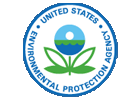In the fall of 2007, the Rosemere Neighborhood Association, along with five other Northwest environmental groups including Columbia Riverkeeper, Willapa Audubon Society, Washington Environmental Council, Sierra Club’s Cascade Chapter and Northwest Energy Coalition were granted the legal status to intervene in the permitting process for Energy Northwest’s proposed 680-megawatt coal-fueled Integrated Gasification Combined Cycle (IGCC) power plant in Kalama, Washington. The intervention was successful, and Energy Northwest withdrew its application to build the coal fired power plant. Environmental groups provided testimony regarding the contamination caused by coal fired power plants, and the public was mobilized to object to Energy Northwest’s plans that would have polluted the Columbia River and would have impacted the health of local residents.
In an effort to make Washington State a coal-free state, conservation groups are now focusing on the aged TransAlta coal fired power plant in Centralia. During the week of Earth Day, a coalition of organizations sponsored Town Hall meetings in Western Washington to discuss the environmental and public health impacts caused by coal plants, and to mobilize efforts to shut down the TransAlta plant, the largest source of greenhouse gas emissions, mercury pollution, and coal haze that that invades 12 wilderness areas in Washington State.
A study published in Open Atmospheric Science Journal by a group of ten scientists from the United States (including NASA), the United Kingdom and France argue that a prompt moratorium on new coal use and a complete phase out of existing coal emissions is needed by 2030 to avert environmental catastrophe. The report concludes: “The stakes, for all life on the planet, surpass those of any previous crisis.”
Rosemere attended the Town Hall meeting in Vancouver, April 21, 2010, sponsored by the Sierra Club. Panelists included Maye Thompson from Oregon Physicians for Social Responsibility, Doug Howell of the Sierra Club, and Ted Nace, author of the book Climate Hope: On the Front Lines of the Fight Against Coal. The Sierra Club has formed the Coal Free campaign with a chapter working in Washington State.
According to a report from Physicians for Social Responsibility, Coal’s Assault on Human Health, “Coal pollutants affect all major body organ systems and contribute to four of the five leading causes of mortality in the U.S.: heart disease, cancer, stroke, and chronic lower respiratory diseases… Coal combustion in particular contributes to diseases affecting large portions of the U.S. population, including asthma, lung cancer, heart disease, and stroke, compounding the major public health challenges of our time. It interferes with lung development, increases the risk of heart attacks, and compromises intellectual capacity.”
Coal Facts Numbers from the Sierra Club
260 Million Gallons of water used for coal mining in the US every day
120 Million tons of solid wastes produced every year by burning coal
90 Million Gallons of wastes slurry produced every year while preparing coal for burning
21 Million people in US live within 5 miles of a coal-fired power plant
12 Million gallons of water used per hour at an average coal-fired power plant
12,000 miners died from black lung disease between 1992 and 2002
1200+ miles of streams that have been buried or polluted in Appalachia from mountaintop removal coal mining
47 US states and territories with mercury fish consumption advisories for some waters
150+ New Coal-fired power plants proposed in US
22% increase in coal mining production from 1985-2005
At present, coal fired power plants produce about half of our nation’s electricity, and in 2006, a record 1.161 billion tons of coal was mined from mountain top removal methods and underground mining The mining of coal releases toxins into rivers and streams and destroys habitat and natural resources including drinking water supplies. Coal plant emissions release greenhouse gasses such as nitrogen oxide, carbon dioxide, sulphur dioxide, and small airborne particulates that arrest lung function. Coal plants also contribute to acid rain, smog and haze, and the release of lead, mercury, and arsenic, and cadmium into rivers and streams.
Governor Gregoire is currently holding private negotiations to extend TransAlta’s permit for 15 more years. TransAlta is a 40-year old unregulated plant that is the state’s worst polluter. Washington State does not need the energy provided by this coal plant, especially when local energy purveyors fail to identify how much of the energy generated is exported out of state on the open market. Governor Gregoire promised transparency in her dealings with TransAlta, but so far has failed to initiate a public review and comment process regarding this coal plant that does not meet state greenhouse gas emissions standards.
Conservation groups request all residents to take action. Please write a letter to Governor Gregoire, asking her not to extend the TransAlta permit, and to make Washington the first coal-free state by 2015. Ask her to pursue clean, renewable energy instead of toxic coal based energy.
Write to:
Office of the Governor
PO Box 40002
Olympia, WA 98504-0002
Phone: 360-902-4111 | FAX: 360-753-4110
Email Form: http://www.governor.wa.gov/contact/default.asp
Please also contact Governor Gregoire’s Climate Policy Advisor, Keith Phillips, and ask him to make good on the Governor’s promise to hold public meetings about TransAlta’s pollution. Ask for dates, times and locations to be specified for public hearings:
Email keith.phillips@gov.wa.gov, or call 360-902-0630.
For more information go to:











![Washington State Water Quality Assessment [303(d)] Washington State Department of Ecology](http://www.rosemerena.org/home/wp-content/uploads/2009/03/ecy_logo.gif)

